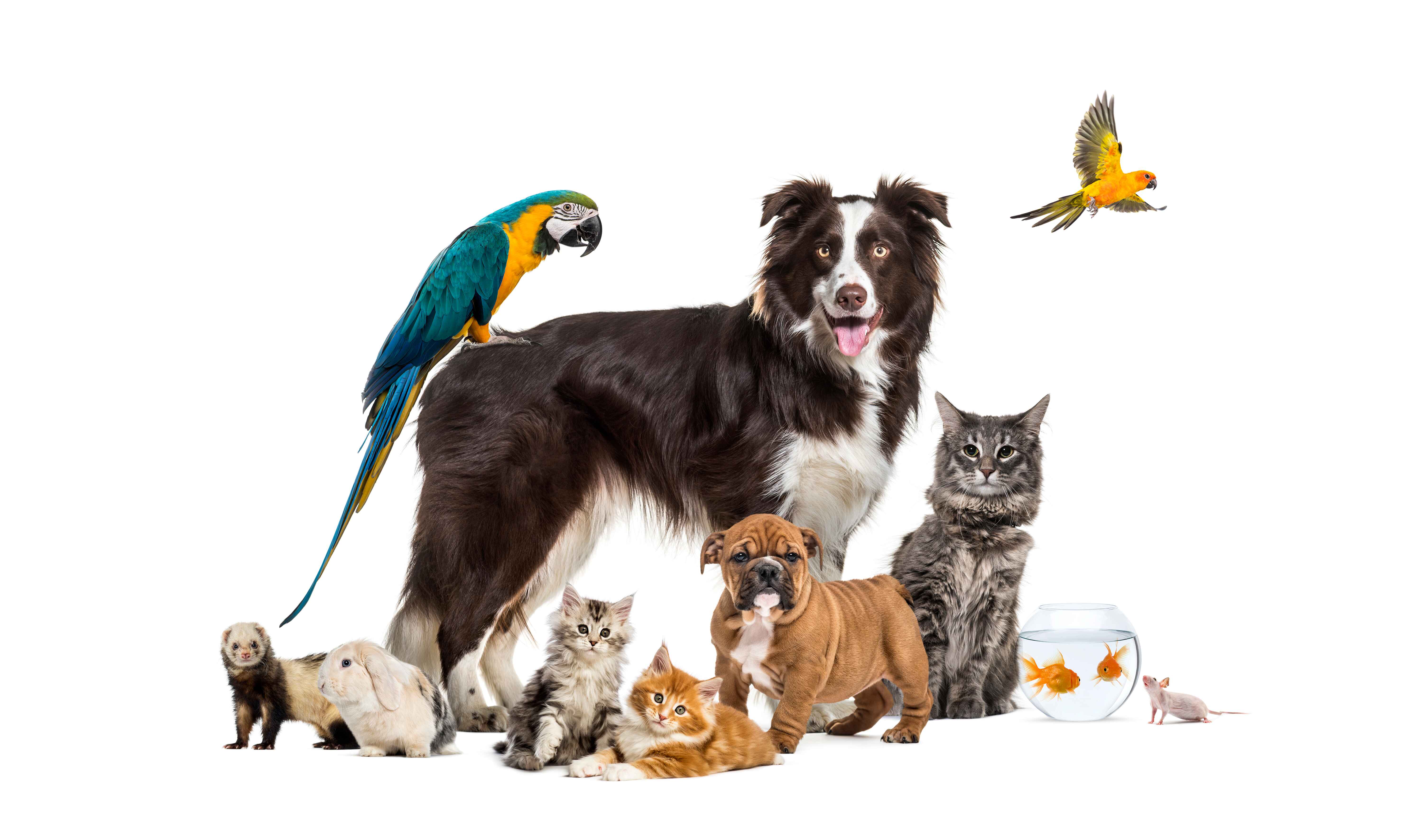The Surprising Way You Can Get This Superbug From Your Pet

10.26 BW Nonlead
https://www.barkandwhiskers.com/2016-03-20-nl-pet-mrsa-infection/
https://www.barkandwhiskers.com/p/de6e9d04-b44c-4eb3-b21c-b5ac285186db/
By Dr. Becker
In a twist on the usual concern that pets can pass on diseases to their human owners, according to a recent study, people infected with the MRSA (methicillin-resistant staphylococcus aureus) superbug can transmit it to their pets.1
"[MRSA] is a significant pathogen in both health care and community settings and causes a spectrum of infections ranging from superficial skin and soft tissue infections (SSTIs) to invasive, life-threatening infections," said Ryley M. Thompson, study co-author.2
And in a possible twist to the twist, it may be that MRSA is able to conceal itself on our pets, allowing them to pass the infection back to us.
According to study co-author Dr. Stephanie Fritz of the Washington University School of Medicine in St. Louis, pets "may serve as a reservoir for ongoing transmission [of MRSA] in the household."3
In the Homes of 49 MRSA-Infected Children, Nine Dogs and Two Cats Were Also Colonized With MRSA
During the study, researchers visited the homes of 49 otherwise healthy children who had "community-associated MRSA" infections, which are defined as infections acquired outside of hospitals.
Samples were taken from several different household surfaces, including TV remotes and refrigerator door handles, as well as 89 family pets (63 dogs and 26 cats), and were tested for the presence of MRSA.
A total of 9 dogs and 2 cats were found to have MRSA bacteria living on them, but none showed symptoms of illness. Dogs and cats aren't natural hosts for MRSA, as evidenced by the fact that they often clear colonization without treatment.
That's why researchers believe the pets acquired the bacteria from human family members and/or surfaces in their environment. MRSA exposure in pets typically involves veterinary clinics, contact with kids, or contaminated items in their environment that they explore with their mouths.
The study also found that the MRSA strains found on pets were often the same strains their owners had.
In addition, almost 90 percent of owners who let MRSA-colonized pets sleep in the same bed with them also had MRSA on their skin, and in half those cases, the strains matched.
About Half of Kids With MRSA Get Re-infected, and a Household Pet Could Be the Culprit
The reason the researchers believe pets may pass the infection back to humans is because about half of children with MRSA get re-infected, even after using special soaps and creams designed to eliminate the bacteria from their skin.
There are no specific treatments for MRSA in pets, but researchers recommend all humans in households with pets wash their hands frequently.
They also recommend dogs and cats sleep in their own beds rather than in bed with other family members, as this may help pets naturally clear the bacteria from their bodies, reducing the risk of passing MRSA back to their human owners.
Why MRSA Is a Growing Problem
In my opinion, MRSA in both pets and people is the result of overuse of antibiotics in human and animal medicine. We're also exposed to antibiotics when we eat factory-farmed animals and animal products.
The decision to use antibiotics should never be taken lightly. They should not be prescribed unless absolutely necessary. Aside from the ability of bacteria to mutate and develop resistance to antibiotics, these drugs also have side effects like every other drug.
Many of the health problems for which antibiotics are routinely overprescribed respond just as well and often better to safer alternatives like herbs, common sense approaches like disinfecting wounds, as well as nutritional supplements.
Unless your pet has a life-threatening illness or injury that can only be treated with antibiotics, let your veterinarian know you prefer to try first to treat the problem without antibiotics.
Avoiding Overuse of Antibiotics
A growing number of health professionals are waking up to the problem of antibiotic overuse, but if your veterinarian isn't one of them, you might want to consider finding an integrative vet more willing to work with you on reducing the use of antibiotics.
Other considerations:
- There are many excellent alternatives to antibiotics prescribed for "routine" reasons (for example, a minor skin infection). Talk with your integrative veterinarian about drug free options first.
- If your pet absolutely must have antibiotics for an aggressive or life threatening infection, make absolutely sure your vet chooses the correct one! Culturing an infection will identify what medication is needed to effectively address the infection.
Viral and fungal infections do not respond to antibiotics. Prescribing antibiotics to treat a viral infection is a classic example of indiscriminate use of the drug, and I see it happen all the time in veterinary medicine.
Without a culture and sensitivity test, your veterinarian can only guess as to the best antibiotic to use. Guesswork leads to decreased cure rates and gincreased antibiotic resistance.
Giving the proper dose of antibiotic at the proper intervals and using the entire prescription is important, even if your pet seems to be fully recovered before the medication has run out.This will ensure the infection is totally resolved and prevent your pet from having to take another full course of antibiotics because the first course wasn't fully administered, and the infection wasn't cleared.
This is especially important with skin infections, because many pet owners stop giving an antibiotic as the wound begins to improve. This can prevent the infection from being thoroughly treated, which can be life-threatening in some cases.
Make sure to also provide a high quality pet probiotic during and after antibiotic therapy. Giving a probiotic will reseed your pet's gut with the appropriate healthy bacteria that he needs for a strong and balanced immune system.
Treating Your Pet's MRSA Infection Using Natural Remedies
I can vividly remember the panic I felt many years ago when I had my first MRSA case that was referred to me because the culture report showed there was not a single antibiotic the infection would respond to and the referring veterinarian didn't know what to do.
I remembered having had some good success using high quality essential oils added to pure shampoos with previous terrible skin cases (those infections were not cultured, so I had no idea what bug was causing the problem).
A week before my first MRSA appointment, while I dove into the literature to see what natural protocols humans were having success with, I suggested the owners bathe their dog daily with a coconut-based shampoo infused with melaleuca, lavender, rosemary and lemon oil.
Little did I know their dog would be markedly better by their first appointment!
The plant kingdom is amazingly adaptable, and in this day and age, I believe nature's ability to co-evolve with bacteria, viruses and fungi just may provide a key to fighting some of these resistant infections and "superbugs." A recent literature search yielded several hundred papers on promising research conducted using a myriad of essential oils (EOs) for combating a multitude of resistant bacterial infections. A few examples include:
- Extracts of cinnamon oil for resistant treating wounds4
- Patchouli, tea tree, geranium and lavender oils with grapefruit seed extracts on wound dressings5
- Tea tree oil for resistant MRSA6
- Eucalyptus and tea tree blend for resistant osteomyelitis (bone infection)7
- Brazilian EOs for pathogenic bacteria8
- EOs derived from the Peruvian Pepper Tree (Schinus areira) for MRSA9
- Vapors from several essential oils effectively killed MRSA
What was striking to me as I read through many of these studies is the vast number of different essential oils (from plants in many different parts of the world) that were all effective in treating MRSA, clinically.
Why It's Important to Consult a Professional
It's very important that you work with a veterinary aromatherapist or holistic practitioner well versed in blending oils for the species you're caring for. There are some important rules to follow when using essential oils to avoid reactions, toxicity, or exacerbation of the condition.
Professional essential oil advice and blending will reduce the likelihood of your pet experiencing any adverse reactions from using these potent all-natural extracts.
There are many options holistic veterinarians use, and they have identified them to be quite successful at treating MRSA infections naturally. Deciding exactly what protocol to use and how to use it is best done with the help of your integrative veterinarian.
If your pet has been diagnosed with a MRSA infection, I firmly believe one of the best adjunctive therapies to effectively cure her is to incorporate a thoughtfully constructed essential oil protocol into her medical plan.
To learn more, contact an aromatherapy practitioner or an animal aromatherapist who will work with your veterinarian:
Related Articles:
 New Discovery: Superbug MRSA Bacteria Easily Transmitted Between Pets and Owners
New Discovery: Superbug MRSA Bacteria Easily Transmitted Between Pets and Owners If Your Vet Thinks Your Pet Needs Antibiotics, Ask Him to Do This First
If Your Vet Thinks Your Pet Needs Antibiotics, Ask Him to Do This First Scientists Never Expected to Discover Antibiotic-Resistant Bacteria Here…
Scientists Never Expected to Discover Antibiotic-Resistant Bacteria Here…

